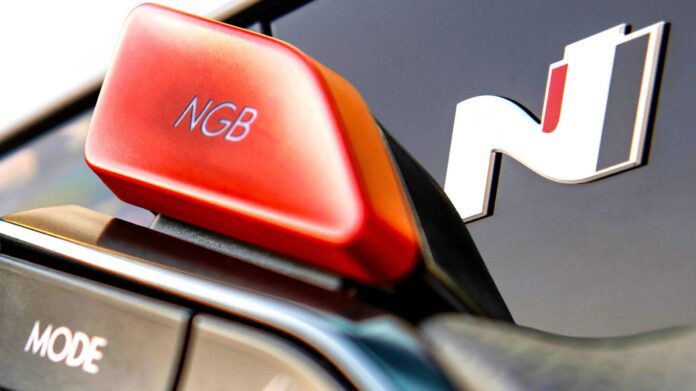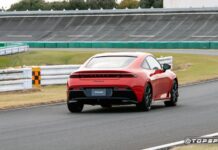Porsche’s top engineers have admitted to being “eye-opened” by Hyundai’s Ioniq 5 N, an electric performance vehicle. The high-ranking officials, including the head of Porsche GT cars, were initially skeptical of the EV but changed their tune after experiencing its power and technology firsthand. This unexpected endorsement highlights a shift in the automotive industry, where traditional sports car manufacturers are taking notice of innovative features developed by competitors.
From Skepticism to Conversion
Andreas Preuninger, Porsche GT cars head, initially dismissed electric cars, stating he “didn’t want any of that electric stuff.” However, after a drive in the Hyundai Ioniq 5 N with Porsche’s vice president Frank Moser, Preuninger was left stunned by the car’s 641 hp and 568 lb-ft torque. The experience prompted Porsche to “learn a lot” from the Ioniq 5 N and consider similar features for its upcoming electric 718 sports car.
Synthesized Sound and Virtual Gearshifts
Hyundai’s “N e-shift” and “N Active Sound+” systems, which simulate gear changes and engine noise, have particularly caught Porsche’s attention. While controversial among EV purists, these features enhance the driving experience by making the car feel more connected and alive. Porsche is now considering offering similar options in its electric 718, allowing customers to choose between silent mode or a more engaging, simulated experience.
“This is the way,” Moser stated, indicating Porsche’s willingness to embrace these technologies while maintaining customer choice.
Implications for Porsche’s Electric Future
The influence of Hyundai on Porsche signals a broader trend where traditional automakers are adapting to the rapid evolution of electric vehicle technology. The upcoming electric Porsche 718, set to arrive in 2027, will likely incorporate lessons learned from the Ioniq 5 N, including a focus on lightweight design and potentially a Sport Chrono-type option package with added features. This collaboration between rivals demonstrates that innovation in electric performance is driving competition and pushing industry boundaries.
The fact that Hyundai, a relatively new player in the high-performance EV space, could influence one of the world’s most respected sports car makers just two decades ago is a testament to the speed of change.




























